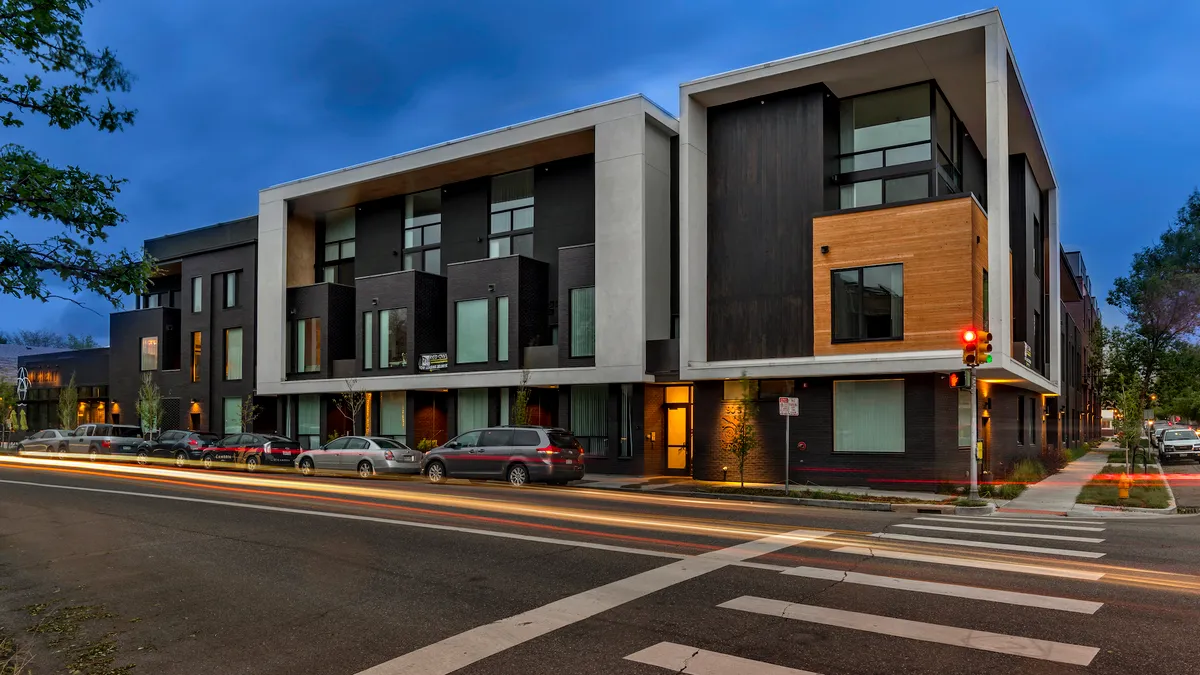Unlike most people who form partnerships in multifamily, Brennen Degner and Paul Pittman didn’t meet at real estate conference happy hours or sit across the table from each other negotiating deals.
Instead, their first introduction was random. “Paul and I met heli-skiing, of all places, in British Columbia years ago,” Degner said. “We had really developed a close social relationship through our love for doing that kind of stuff.”
After maintaining a friendship over the years, Degner, the former founder and CEO of Littleton, Colorado-based multifamily investment firm DB Capital Management, and Pittman, the executive chairman of Denver-based REIT Farmland Partners, teamed up to launch Platte Canyon Capital in January.
The Denver-based firm will use $30 million in capital from funds managed by Culver City, California-based private equity firm Inceptiv to invest in middle-market multifamily value-add opportunities in five markets to start. On a levered basis, Platte Canyon will acquire between $750 million to $1 billion of distressed opportunities, according to Degner.
“We've got a lot of really strong capital relationships,” Degner said. “We've got a strong balance sheet to allocate.”
While the firm won’t manage its properties or directly handle construction renovations, it does have connections to lean on in those specialties.
“When I was at DB Capital Management, there was some ownership in a construction company,” Degner told Multifamily Dive. “So there's a strategic focus there. And that really adds a lot of value and efficiency on the construction side, but technically, it's a separate company.”
Distressed opportunities
Platte Canyon, which will have five people on the deal team, will target mismanaged and undercapitalized apartments in Dallas; Austin, Texas; San Antonio; Denver; and Salt Lake City. It expects to acquire roughly 5,000 units of these properties, which investors don’t covet as much as newer assets.
“I'm actually starting to have a thesis around trying to invest in the areas that capital has pulled out of,” Degner said. “So, to some degree, that's a pre-1990s product in high construction markets with supply challenges. If you can get that stuff at the right basis, in the right markets, with the right fundamentals in your underwriting, you can do really well.”
But Degner, who will continue to be involved in DB Capital in an advisory capacity, admits this is difficult.
“I think that it's been really challenging to see that kind of deal flow in the market because there's just a lot of gridlock,” Degner said. “There’s a separation between peak value and where values are today. It takes a while for that to actually take effect before things start to be lubricated enough to trade.”
But these opportunities will vary by market. In Texas, where oversupply is a concern, conversations have started around the sale of these older properties. That's not the case in other places.
“Our other markets, Salt Lake City and Denver, just weren't as over-bought,” Degner said. “The peak to trough just hasn't been as significant.”
Click here to sign up to receive multifamily and apartment news like this article in your inbox every weekday.











